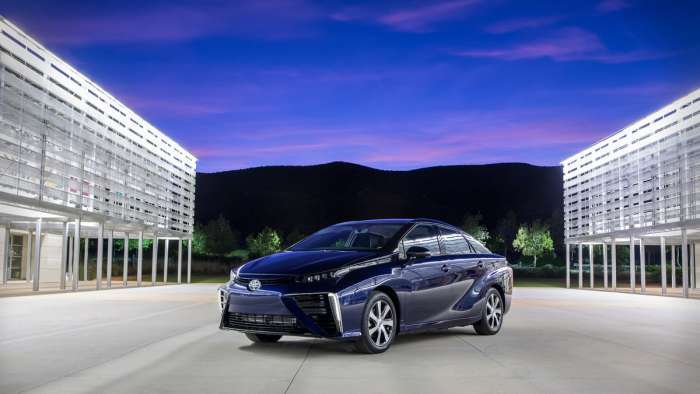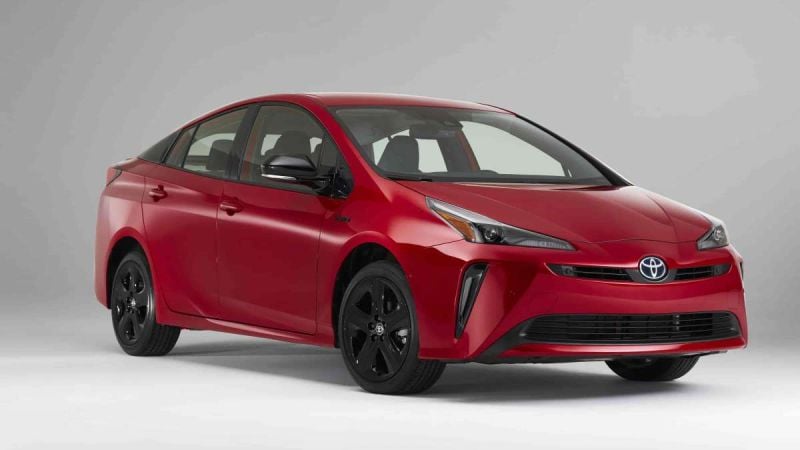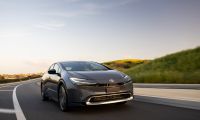Diesel technology is not just something that is only for the super tough and rugged. Sure we see giant semi-trucks and passenger pickups with high-torque engines that can pull over a house, but is that all it can do? No, and that is what one thing I want to touch on here today.
Diesel motors are great for a ton of reasons. They have excellent power output and can be very fuel-efficient in the right sized package. Most people hear the word diesel, and they think "dirty', or "rolling coal." Both are stigmas about diesel motors, and the reason we see it is because of the way it gets delivered to us (usually on some media platform).
While some diesel types can be annoying and put out a ton of soot exhaust, you have to remember that this is not the majority of diesel engines on the road. Most are quite clean-burning and soot-free.
Diesel engines in small packages can be very fuel-efficient. Now, sometimes companies like Volkswagen lie about their numbers, but the little diesel engines are getting hybrid-like EPA numbers for the most part. The small diesel engine is incredibly durable as well.
If there is so much good a diesel engine can do, why are we not seeing it paired with a hybrid car for even better fuel economy? I thought about it and came up with three reasons why I believe we will never see a diesel hybrid.
The EPA
Have you ever heard of the Environmental Protection Agency? They are the governing body that is one reason we are not going to see a diesel hybrid. Because of the regulations, the EPA put on companies that sell cars here in the United States.
The EPA has begun to crack down more on diesel regulations, even fining aftermarket companies hundreds of thousands of dollars for selling anything to do with altering the engines. Diesel engines, according to the EPA, are spewing out pollutants, including smog-forming volatile organic compounds and nitrogen oxides, various toxic air pollutants such as cancer-causing benzene, carbon monoxide, particulate matter or soot, and greenhouse gases.
They say that these pollutants and adverse effects on the environment are responsible for asthma, heart disease, and other illnesses. Makes sense; I am sure that in massive quantities, this is true.
A massive company like Toyota does not want to hassle with all of that nonsense despite diesel's benefits; it is best to stay out of the game.
Hybrid Tech Is A Bridge Technology
Hybrid technology is a bridge technology meant to get us to a new "normal," whatever that is. If the Toyota Prius all of a sudden became a diesel, that would be cool, but it would not be practical.
The car would more than likely get better fuel economy and also have more power. It would be far more durable too. But when Toyota created the world's first hybrid car, it was meant to come "before" the future.
With Tesla showing up and vastly changing the EV market, Toyota and many other car companies have had to re-think what they are doing for the future of transportation.
Toyota is still going to run with hybrid technology as long as they can. They are also pushing hard for HFCV (hydrogen fuel cell), which only exists in the nation's minimal areas.

Hybrids will die out quickly once Toyota can either make the EV market work for them or mass-produce hydrogen in a cost-effective and environmentally friendly way. No matter how you slice it, a hybrid diesel will never happen.
The Added Cost Of DEF Systems Are Too Expensive
Diesel exhaust fluid is a liquid that gets injected into diesel systems to help them essentially burn cleaner. An excellent running diesel with a DEF system will produce far fewer tailpipe emissions than a gasoline car.
The downside is that when trying to combine a diesel DEF system into a hybrid, you are adding weight and cost, both of which are not why hybrids were developed.
If a Toyota Prius's base cost went from $25,000 to $35,000, it would take even longer to get your fuel savings back from driving. Add in the price of DEF maintenance and diesel exhaust regen maintenance, and you have a real problem on your hands.
Conclusion
These systems' added cost would not make it worthwhile to have a diesel in a hybrid car. It would be cool if we did not have all the regulations to deal with but, here we are, and there isn't anything that can be done about that.
Check out this article: Need A HV Battery For Your Toyota Prius? Green Bean Has Your Back!
Check out this wild new battery tech that Tesla has and why it will forever change the auto industry.
Peter Neilson is an automotive consultant specializing in electric cars and hybrid battery technologies. He holds a Bachelor of Science in Automotive Service Technology from Weber State University. Peter is also an Instructor of Automotive Technology at Columbia Basin College. Peter can be reached on Linkedin and you can tweet him at The_hybrid_guy on Twitter. Find his page on Facebook at Certified Auto Consulting. Read more of Peter's stories at Toyota news coverage on Torque News. Search Toyota Prius Torque News for more in depth Prius coverage from our reporters.
Set Torque News as Preferred Source on Google












Comments
While this is an accurate
Permalink
While this is an accurate story, you can find "hybrid diesels - in transit buses out for the last 10 years, some off road- wheel loaders and other machines from Cat, Deere, Volvo and probably others and other off road equipment. it's all about cost, and duty cycles that make sense for capturing wasted energy.
Hybrids are not only for
Permalink
Hybrids are not only for transition vehicles. There are certain vehicles where fossil fuels have an advantage. I promote EVs, but you cannot ignore the advantages of gas and diesel engines for certain uses. I don't ever see a diesel Prius in the future simply because VW forever tainted the name of diesel engines, and Prius stands for the opposite of that. But GMC will soon have an electric Hummer, which would have seemed impossible only a few years ago. I do think that diesel hybrids will come out for vehicles that are still holding onto diesel engines today, like trucks, Jeeps, and commercial vehicles. Since they already have the diesel urea injection systems to reduce particulate emissions, and other versions of the vehicles are starting to come out that have electric motors built into their transmissions, it's an easy way to green-wash these smokey titans, have efficient, selectable AWD, and provide quiet, clean, low speed operations.
I agree. I'd buy a Diesel
Permalink
In reply to Hybrids are not only for by DeanMcManis (not verified)
I agree. I'd buy a Diesel-Electric hybrid truck if it were allowed to be offered here in the USA. But the stupid EPA refuses to offer anything smaller than 5 litres that is diesel. Why? Damned if I know. I'd like to breathe clean air as much as anyone, but it's damned unforgivable what the EPA is willing to do to.
Thats funny Dodge made a 3…
Permalink
In reply to I agree. I'd buy a Diesel by Car Nut Tacoma (not verified)
Thats funny
Dodge made a 3.0L diesel…..
Nice overview but IMHO most
Permalink
Nice overview but IMHO most companies are stuck in the past where hybrid tech is involved.
I understand that 10-15 years ago, the systems like many today's hybrid systems where the only way to move into the future. The battery tech was unreliable, heavy and big. The electric motors capable of propelling car at highway speed were also bulky and heavy and somewhat unreliable too. But today all that is not true anymore. Today's battery technology is good enough for full EV, today's electric motors are small and lightweight and very reliable.
We do not need a hybrid system, we need an low priced EV with an ICE generator onboard.
The system would be simple and very very reliable. Really cost effective in use and maintenance.
The propulsion will be only via electric motors. Best option maybe one motor per weel setup.
This eliminate need to gears and transmission in any way or form. A reasonable sized battery capable of giving the car at least 300 or 400 miles per charge. And an onboard generator to give car unlimited range with very fast refuel as needed. Most of the time the car can be charged at point of parking . I. E. At home, at work, and mall parking at rest stop. But if you do not have time, just fill the tank and on-board generator will provide the power to propel the car and charge the battery on the go.
As other energy generating systems developed the ICE can be replaced with then. Hydrogen fuel generator, or hydrogen cell. Fusion what ever. A generator can be run much more efficiently and cleaner since it needs to run at constant speed, so it can run at most efficient rpms. But most car companies are blind to the opportunity presented with current tech.
Dude, you need to present
Permalink
In reply to Nice overview but IMHO most by Vl (not verified)
Dude, you need to present these ideas to Elon Musk. An onboard generator to keep the battery charged.. F#in brilliant. Is that kinda like a hybrid but with the roles reversed. Big battery/small ICE vs. small battery/big ICE. ?
I have a pre emissions VW
Permalink
I have a pre emissions VW Jetta TDI. I get 44 mpg city on winter diesel.
I always wondered why they
Permalink
I always wondered why they didn't make a very small diesel engine hybrid. I figured the diesel could just be used to spin a large generator to keep the battery charged.
And i will give you 3 more
Permalink
And i will give you 3 more prominent reasons..Government, Oil companies, World Bankers...
Hi paul I with a Community
Permalink
Hi paul I with a Community Church Market Ministry and would Discuss ideas for Commercial Vehicle Biodiesel power system thank you Anthony
Paul Blakely wrote on January 1, 2022 - 6:17pmPermalink
Dude, you need to present these ideas to Elon Musk. An onboard generator to keep the battery charged.. F#in brilliant. Is that kinda like a hybrid but with the roles reversed. Big battery/small ICE vs. small battery/big ICE. ?
Hi Mark I am with a Community
Permalink
Hi Mark I am with a Community Church Market Ministry working on forming a group I Would like to introduce you to our to our mission and discuss to use biofuel and other alternatives in Commercial Transportation to power.
Mark Sleep wrote on January 4, 2022 - 8:07amPermalink
I always wondered why they didn't make a very small diesel engine hybrid. I figured the diesel could just be used to spin a large generator to keep the battery charged.
Hi Mark I am with a Community
Permalink
Hi Mark I am with a Community Church Market Ministry working on forming a group I Would like to introduce you to our to our mission and discuss to use biofuel and other alternatives in Commercial Transportation to power.
Mark Sleep wrote on January 4, 2022 - 8:07amPermalink
I always wondered why they didn't make a very small diesel engine hybrid. I figured the diesel could just be used to spin a large generator to keep the battery charged.
I consider it unforgivable
Permalink
I consider it unforgivable that we may never see a diesel-electric hybrid powered car, or truck here in the USA. Leave it to the USA EPA to restrict what can power a vehicle. I'd like to breathe clean air as much as anyone, but this is wrong!
“When Toyota made the first…
Permalink
“When Toyota made the first hybrid car.” Facts matter. Honda made the first hybrid car with the insight. The Prius came second.